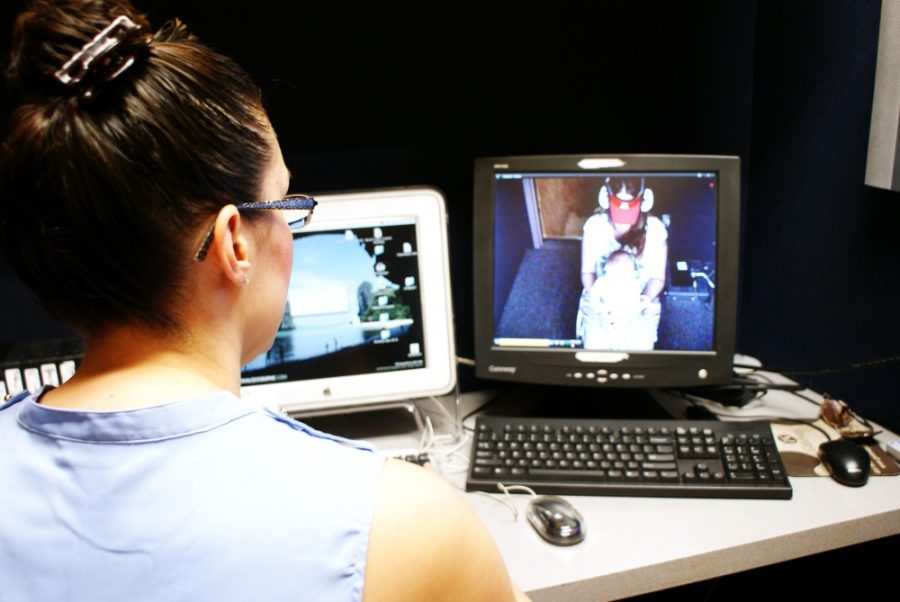Everyone knows that sleep is vital. But when it comes to last-minute studying, many students cut into their sleep schedules for a few extra points on an exam. After all, more time memorizing means less time spent guessing on multiple-choice questions, right?
Maybe not. Rebecca Gómez, an associate professor in the UA’s department of psychology, has been researching the relationships between cognition, memory and sleep in students and infants in her Child Cognition lab since 2001. Gómez’s unique work on sleep in infant learning and her studies on sleep in adult learning have repeatedly shown how critical sleep can be.
“We know, from studies that we are doing, that you’ll retain much more if you sleep after a learning experience than if you stay awake,” Gómez said.
In one study, Gómez has a student come into the lab for a learning experience on a Monday. The participants are then fitted with a body movement monitor that tells the lab how long they sleep. Two days later, the subjects are again presented with information to learn before being sent home to sleep. At the end of the week, the students’ memory is tested, and the results are compared to the amount of rest they got.
With this paradigm, Gómez has found that the amount of sleep a person gets the night before and the night of a learning experience is significant in the student’s consolidation of that memory. Essentially, better sleep leads to a more fortified memory of a learning experience, she said.
When sleep-deprived, students don’t formulate correct decisions and recognize information they should know, Gómez said.
“You would be better off just studying for 30 minutes or an hour and getting at least six to eight hours of sleep the night before an exam,” she said.
As a graduate student in the department of psychology, Katie Newman-Smith has been conducting studies of her own that may help explain sleep’s role in adult memory.
Since many of the participants in her ongoing research come from the UA, Newman-Smith asked that the details of her study not be printed, as it could jeopardize the study’s purity and reliability. She did, however, provide some thoughts after seeing some initial results.
“My recommendation, and what I think [researchers in] the entire field of sleep would recommend, is that you should spread out learning and spread out studying over a couple of days before the exam and make sure that you get a good night’s sleep,” Newman-Smith said. “You’ll actually do better and stabilize information while [you] sleep.”
As for students who still manage to get the grade with no sleep, Newman-Smith said she thinks some people are simply better at it than others. However, if you were to question the successful non-sleepers a month later, they probably wouldn’t be able to regurgitate much of the information, she said.
Gómez is involved in numerous sleep studies, including novel research on infants, whose brains are just starting to form connections and associations. The results of all her studies point to the fact that sleep is a necessary component in cognition and memory formation.
To those students who sacrifice sleep for a few hours of cramming, Gómez’s message is clear.
“It’s just totally counterproductive,” she said. “College students would do so much better if they knew how important sleep is.”
—Follow Dara Farhadi @Dara_Farhadi









